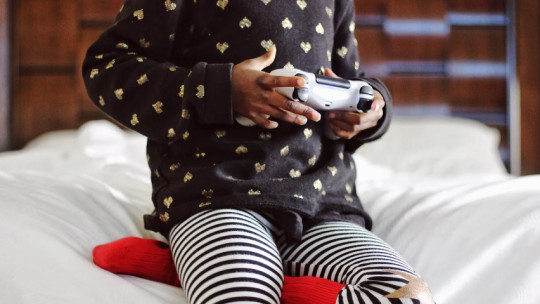
You go through the field, you pick a daisy and you start removing its leaves while you sing: “he loves me” “he doesn’t love me” and with each phrase one less leaf until you are left with one in your hand. What has come out? Does he love you or doesn’t he love you? How do you feel? This game that we have all played at some point as children or have seen in a movie or series, very typical of teenagers, when their first relationships, first loves, and doubts about them begin.
What happens if we continue playing this game, even if we don’t pick a flower? What would happen if this thought began to accompany us constantly no matter where we are or what we are doing? Well, what some call love OCD happens. To learn more about what it is about, in this PsychologyFor article, we will talk about the Love OCD: what it is, its symptoms and treatment.
What is love OCD?
Obsessive-compulsive disorder is characterized by the presence of obsessions, cognitive content that appears in the mind and generates anxiety, and compulsions, everything the person does to counteract the obsessions, whether they are behaviors or mental acts. In order to speak of OCD, it is necessary that both are manifested.
In the specific case of love OCD, we are talking about an obsession of thought where The main axis is the doubt about whether or not one loves one’s partner or, on the contrary, if the partner loves him or not. How do you know if it’s love OCD or I don’t want it? To determine that we are dealing with a case of love OCD, the doubt about whether the couple’s love is real or not (obsession) must have the following characteristics:
- Persistent: is repeated. The thought should not be specific, since we can all have it at some point.
- Resistant: the person does things to avoid having those types of thoughts again.
- Passive exposure: appear in your head. The person experiences them as their own and meaningless.
- Egodystonic: generate discomfort and create interference in the subject’s life.
In addition to the presence of obsession, if the person suffers from love OCD they will also have compulsions, all those repetitive overt behaviors as stereotypies or coverts (mental) that in themselves are not pleasurable, nor do they give rise to any useful activity.
In cases of love OCD there will not always be a realistic or logical connection, that is, known irrationality and resistance are present, which can cause relief of tension. Therefore, compulsions prevent the discomfort of obsession with short-term effectiveness.
Symptoms of love OCD
How do I know if I have love OCD? In addition to the main symptom on which love OCD revolves, that is, doubts about whether that special person loves you or not or whether you love them or not, there are ways in which it manifests itself. Next, we will see the main symptoms of love OCD:
- Avoidance and restrictions self-imposed.
- Search for tranquility.
- Rituals cognitive.
- Pay attention to negative information. Discover how to control negative obsessive thoughts.
- Hopelessness and concern.
- Rumination.
- High levels of physiological activation.
- Changes in body functions.
- Sleep disorders.
- Appearance of anxious symptoms.
- Appearance of depressive symptoms.
- Discomfort.
- Excessive alcohol consumption sedative, hypnotic or anxiolytic drugs.
- Feeling of guilt and pathological feelings of responsibility. In this article, we tell you what guilt is in psychology.

Treatment of love OCD
How to cure love OCD? Many authors, including versions prior to the DSM 5th edition(1), understand obsessive-compulsive disorder as a type of anxiety disorder. For this reason, we find so many similarities in their treatments, the cognitive approaches to cognitive behavioral therapy those that have proven to be more effective.
To overcome love OCD, cognitive-behavioral therapy is usually accompanied by psychotropic drugs, the most used of which are clomipramine, fluoxetine and fluvoxamine.
In addition, other therapies have been used for the treatment of love OCD, increasingly out of use, which could attract the attention of more than one person. We see them below:
- cingulotomy: surgical destruction of specific fiber bundles in the subcortical area of the frontal lobe) with positive results and a reasonable success rate.
- Capsulotomy: another surgical operation in which a region of the cingulate fascicle is destroyed.
These processes are irreversible, so they should only be used as a last resort, since adverse side effects may appear such as difficulty planning behaviors, apathy or difficulty inhibiting responses that are not socially accepted. Discover more about apathy: meaning, symptoms and how to overcome it in this article.
Another type of love OCD treatment that is showing effectiveness is Deep Brain Stimulation (DBS). Some experts talk about applying it to the basal nuclei or bundles of fibers connected to them, and others, however, state that greater effectiveness is achieved when applied to the subthalamic nucleus. A positive point of this therapy is its reversibility compared to psychosurgeries.
This article is merely informative, at PsychologyFor we do not have the power to make a diagnosis or recommend a treatment. We invite you to go to a psychologist to treat your particular case.
If you want to read more articles similar to Love OCD: what it is, symptoms and treatment we recommend that you enter our Clinical Psychology category.
- American psychiatric association, (2014). Diagnostic and Statistical Manual of Mental Disorders DSM – 5. Madrid Spain. Pan-American medical publishing house.
Bibliography
- Belloch, A., Sandín, B., Ramos, F., (2009). Manual of psychopathology, volume II. Madrid. McGraw Hill / Interamericana de España, SAU
- Carlson, N. R. (2014). Behavioral physiology. Madrid. Pearson Education, S.A.
- Labrador, FJ, (ed.) (2008). Behavior modification techniques. Madrid. Pyramid.








